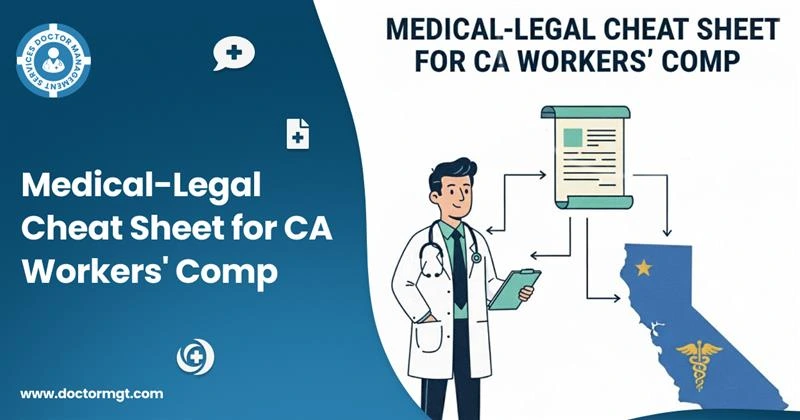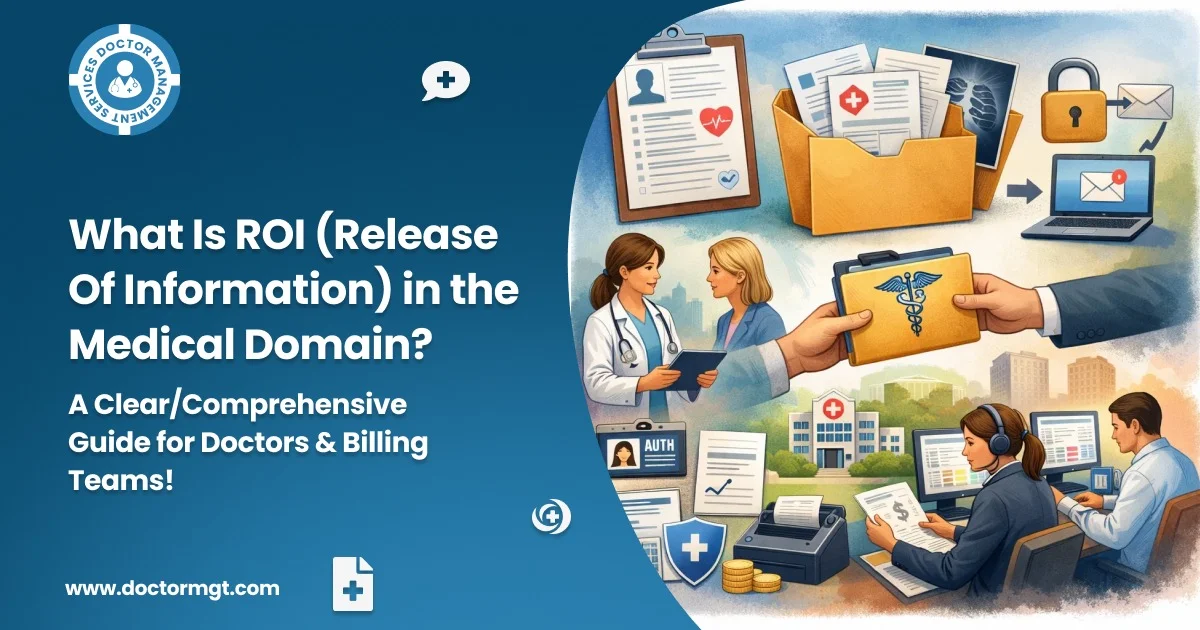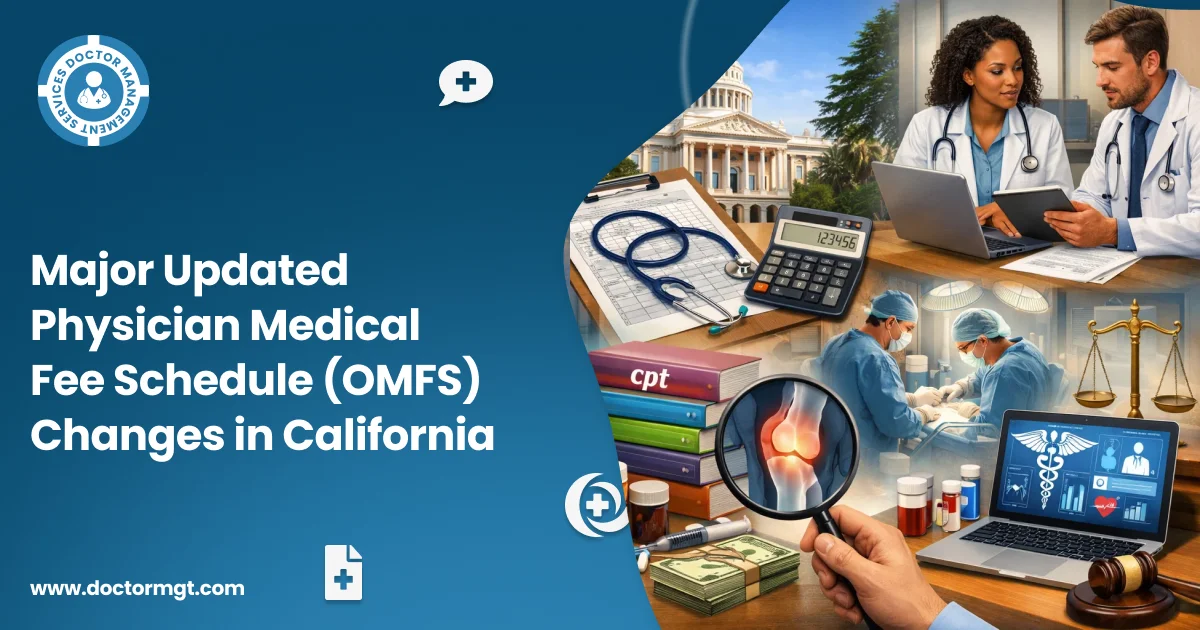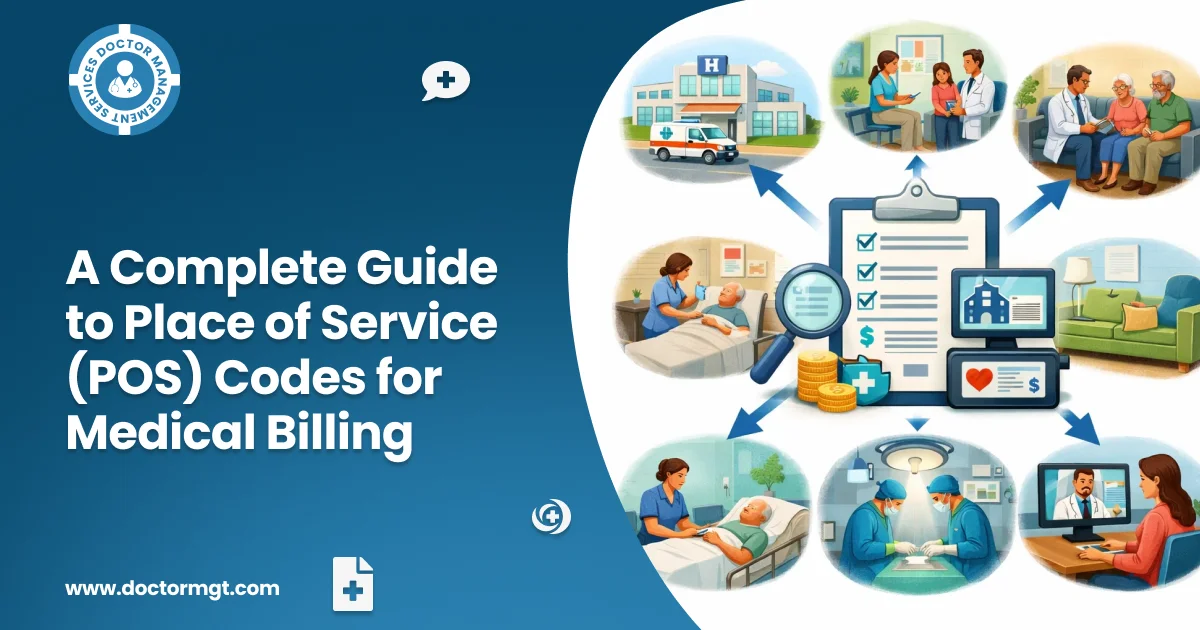California workers’ compensation has a unique framework for handling medical-legal evaluations, especially those performed by Qualified Medical Evaluators (QME) and Agreed Medical Evaluators (AME). These reports are critical in disputed claims, and the billing rules governing them are highly structured. To ensure fairness and consistency, the state relies on two sources: the California Code of Regulations (CCR §9795), which sets the Medical-Legal Fee Schedule (MLFS), and the California Labor Code (§4062.3), which governs how medical records and communications are handled.
This guide pulls directly from those official sources and lays out everything you need to know to stay compliant and maximize reimbursement in 2025.
Why Medical-Legal Billing Rules Exist
Medical-legal evaluations often determine the outcome of disputes in workers’ compensation cases, issues like causation, treatment necessity, and permanent disability ratings. Because these evaluations are so influential, California sets a statewide fee schedule that establishes both what evaluators can bill and the conditions under which bills are valid.
The result is a system that ensures providers are fairly reimbursed while protecting injured workers and payers from inconsistent practices.
The Medical-Legal Fee Schedule (CCR §9795)
The CCR §9795 outlines fees as Relative Value (RV) × $16.25, with modifiers applied in certain cases. The current schedule applies to all services on or after April 1, 2021 and remains in force for 2025.
| Code | RV | Description | 2025 Fee |
| ML200 | 31 | Missed Appointment (comprehensive or follow-up | $503.75 |
| ML201 | 124 | Comprehensive Medical-Legal Evaluation | $2,015 |
| ML202 | 81 | Follow-Up Evaluation (within 18 months, same physician) | $1,316.25 |
| ML203 | 40 | Supplemental Report (new records or request) | $650 |
| ML204 | 7/hr | Medical-Legal Testimony, incl. prep & travel | $455/hr (min. 2 hrs for deposition) |
| ML205 | 5/hr | Sub Rosa Recording Review | $325/hr |
| MLPRR | Record Review beyond included pages | $3/page |
Each procedure code covers not just the evaluation itself, but also the physician’s time for history, exam, report preparation, typing, transcription, and overhead.
Record Review Requirements
Medical-legal evaluations always involve records, sometimes hundreds of pages. Both CCR §9795 and Labor Code §4062.3 establish strict rules:
Included Pages
- ML201 and ML202: Up to 200 pages of records are included in the base fee.
- ML203: Includes up to 50 pages.
Excess Pages
- Any records beyond these thresholds are billed under MLPRR at $3 per page.
Mandatory Declaration
- Records must be accompanied by a 4062.3 declaration under penalty of perjury.
- The declaration must confirm compliance with service rules and state the total page count.
Billing Eligibility
- A physician cannot bill for reviewing documents that lack this declaration.
- Reports must include verification of the total pages reviewed, also under penalty of perjury.
This is why billing teams should always verify that the declaration is in the file before submitting MLPRR charges.
Communication Rules Under Labor Code §4062.3
To protect the neutrality of QMEs and AMEs, California imposes strict communication rules:
Advance Service of Records
- Parties must serve records on the opposing party 20 days before giving them to the evaluator.
- The opposing party has 10 days to object to nonmedical records.
QME Reports Must Identify:
- All information received.
- All information reviewed.
- All information relied upon.
Ex Parte Communications
- Direct communication with the evaluator is prohibited.
- Violations allow the aggrieved party to terminate the evaluation and seek a new QME, and may result in contempt charges and cost penalties.
AME Cases
- Both parties must agree on the records sent to the evaluator.
Exceptions
- Scheduling, missed appointments, and routine logistics do not count as ex parte communications unless ruled otherwise by the Appeals Board.
Modifiers That Adjust Reimbursement
Certain circumstances significantly increase the work required for an evaluation. For these cases, CCR §9795(d) allows the use of modifiers:
| Modifier | When Used | Effect |
| -92 | Performed by Primary Treating Physician (PTP) | Identification only |
| -93 | Interpreter required / impaired communication | Multiply base fee × 1.1 |
| -94 | Evaluation by an AME | Multiply base fee × 1.35 (or × 1.45 with -93) |
| -95 | Panel-selected QME | Identification only |
| -96 | Psychiatric / Psychological evaluation | Multiply base fee × 2.0 (up to × 2.45 with combos) |
| -97 | Toxicology evaluation | Multiply base fee × 1.5 (up to × 1.95 with combos) |
| -98 | Oncology evaluation | Multiply base fee × 1.5 (up to × 1.95 with combos) |
Example:
A comprehensive AME psychiatric evaluation requiring an interpreter (ML201-93-94-96) can raise the reimbursement multiplier to 2.45, meaning the $2,015 base grows to nearly $4,940.
Compliance Notes
- Missed Appointment (ML200): Payment is available if a report is produced within 30 days, and only when the missed appointment is not the physician’s fault.
- Supplemental Reports (ML203): Cannot be billed if the information was already available at the time of the prior report or should have been addressed previously.
- Duplicate Reports: Must be requested in writing and are reimbursed under the Official Medical Fee Schedule (OMFS), not the MLFS.
Why This Matters in 2025
For physicians, attorneys, and billing services, medical-legal billing is where compliance meets revenue protection. Every missed declaration, every improper communication, and every skipped modifier translates into lost reimbursement or worse, a compliance violation.
By aligning your billing with CCR §9795 and Labor Code §4062.3, you not only secure correct payment but also safeguard against disputes, denials, and penalties.
Final Thoughts
Medical-legal billing in California workers’ compensation is not just about memorizing codes. It’s about understanding the interplay between fee schedules and legal requirements. The CCR sets the fees. The Labor Code dictates how evidence is exchanged and documented. Together, they form a system designed to ensure fairness, transparency, and accuracy in resolving disputes.
If you handle QME or AME billing in 2025, treat these two codes, CCR §9795 and Labor Code §4062.3, as your roadmap. Follow them closely, and your bills will stand up to scrutiny, your reimbursements will be consistent, and your practice will stay fully compliant.







